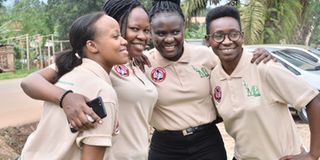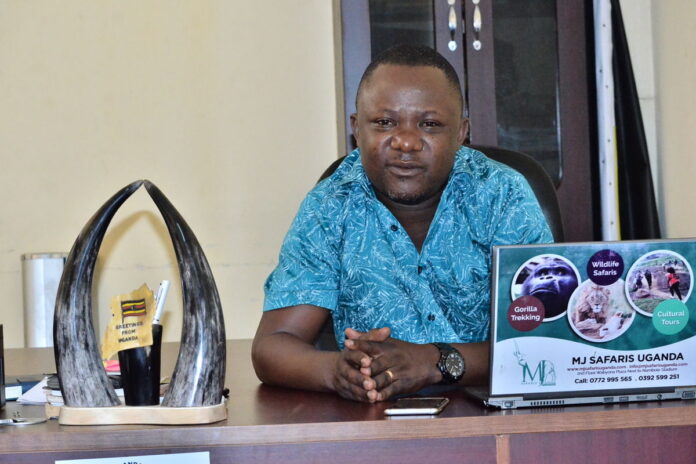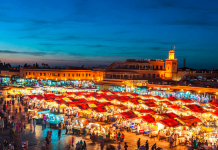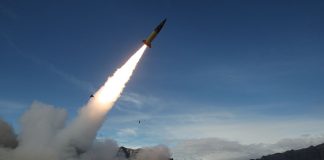James Mwere’s passion saw him grow from a tour guide to own a safari company. MJ Safaris offer gorilla trekking experience, wildlife safaris, birding, cultural tours, nature guides on top of their niche in sports tourism in Uganda, Rwanda, DR Congo and Tanzania.
Mwere takes advantage of young people to offer adventure packages especially mountain hiking, white-water rafting, zip lining and tubing on River Nile.
He says that few Ugandans are interested in primate safaris attributing it to the perception of Ugandans who prefer to travel abroad especially Dubai and South Africa instead of exploring their country.
“What most people do not know is that beauty is all around us. People organise honeymoons elsewhere yet such places as Ssese Islands, are amazing. When some of my clients go there, most realise they spend a lot of money on artificial sites abroad for nothing,” he says.
Mwere explains that local tourism is not well positioned to attract Ugandans.
“In general, the industry is aligned so much to cater for the interests of foreigners. Billing in dollars has not done us any favour. We also need discounts for domestic tourists as an enticement. We have not given our people an opportunity to experience their country,” he explains.
Mwere, who wears many hats, is the chairperson of the Forum for Tour Operators and a senior tourism officer at the Ministry of Tourism and Heritage, Busoga Kingdom.
His company holds membership for Association of Uganda Tour Operators (AUTO) and Tour Guides Forum Uganda (TGFU). TFGU brings together tour guides and tourist drivers in Uganda.
Mwere, a charismatic personality, who is vocal about local tourism, is the brain behind Tulambule, a celebrity-led drive, aimed at encouraging Ugandans to be tourists in their country.
He says that it is important to offer Ugandans an opportunity to appreciate their heritage and nature.
“I am among the pioneers of domestic tourism which in one way has helped us to stamp our feet in the market. It has helped us to create awareness for our company,” Mwere says.
His work has been recognised by peers and no wonder he was a finalist of the EcoTripMatch’s “2020 Best Nature Guide of the Year” award as someone who supports conservation through ecotourism.
In Mwere’s world, tourism is the best job ever because as a tour guide, he is paid to travel.
“When someone wants to visit any place, they will pay you to take them there,” he says.
Sports tourism is a fast-growing sector globally but is just taking root in Uganda.
Mwere says rally and football fans are the biggest drivers of sports tourism as they move to various destinations across the country.
In areas that have embraced sports tourism, Mwere says, the benefits are immense when national and international championships are held.
“Sports is one channel we want to use to promote tourism among Ugandans. When you look at motorsport, the fans are the biggest domestic tourists the country has. A calendar of rally events takes us across the country with huge numbers of Ugandans following the events,” Mwere says.
The company were co-sponsors of the recently concluded Kaliro Sugar EMC Rally in Iganga District.
“Whenever we have an opportunity to speak about our country, we have to sell the attractions,” he says.
MJ Safaris were part of the Pool Cranes journey to the All Africa Pool Association Championship where the She Cranes, the women’s team, won gold with Rukia Nayiga becoming the African champion.
Pool is the sport Mwere played competitively as he followed SC Villa as a fan.
“I want the players to get exposure through tourism. I am trying to open up their eyes to get an opportunity that lies in travelling across the country and the continent. Young people must learn about the opportunities their country has to offer yet the sector employs many youths who can venture into becoming tour guides if they know how to drive,” Mwere explains.
“Talent is short-lived but if they can learn other languages, they can add value to their brands,” he says.
An automobile mechanical engineer by training, Mwere started work at former Caltex in Mukono as a service attendant before Lady Luck smiled on him and he joined tourism as a business.
“Caltex used to give us good training in customer service which helped to shape me into a better person,” he says.
But starting a company of his own was not straight forward.
In 2008, Hassan Mutebi a tour operator of Access Uganda Tours based in Mukono asked Mwere to join him as a driver.
“I was not sure. I was very sceptical. It took me about two years to realise this was the thing for me,” Mwere says.
When French oil company Total took over Caltex in 2008, Mwere was to land in a whole new world. He lost his job and had to turn to Mutebi for a job.
In 2010, he was offered his first gig to a five-day birdwatching trip to Budongo Forest stopping in Kibale. But his mind was focused on the threat of the ADF rebels who were notorious at the time. Yet when he reached the Primate Lodge, owned by Amos Wekesa, his mind changed forever.
“It was that day when my world changed. I was awed by the place and when I found out that it was owned by a Ugandan, I knew I could get all I wanted through tourism,” he says.
His adventure with Mutebi lasted only four trips as he was considered surplus to the workforce.
“Even then, he was into birdwatching and I was not a birder at all. But he could not employ two people at the same time as he had birdwatching guides who could drive. Secondly, I came in during the peak and then bookings started to ebb,” Mwere recalls.
He momentarily joined another company but unusual circumstances led him to start his own company.
During one of the trips that had Japanese and American tourists, one of the tourists asked to be taken to Murchison Falls outside the package he had been offered.
Mwere hired a van and when he reached the clerk asked for the details of the tour company bringing the guests. He immediately said MJ Safaris Uganda.
“That is the day the company was born. All receipts were in my company’s name,” he says.
But Mwere continued working for his boss until he received an e-mail from the same gentleman asking him to take his cousin sister for a trip. This was the second time he was billing in the names of MJ Safaris.
In April 2013, he registered his company.
Starting with seven employees, including three female guides, Mwere admits to making mistakes but encourages entrepreneurs to follow their heart and set a strong foundation for their companies.
“Marketing a tour company is a big hurdle and that is when I realised there was an opportunity to get into sports tourism. It has helped me a lot in growing numbers because people who follow sport can spend and stay,” he says.

Mwere wants the pool players earn exposure through local tourism when they play tournaments.
Mwere says that there are obvious gaps that need to be fixed in terms of value addition to what fans can be offered.
“Someone travelling to only watch rally cars is not enough. We need to offer tour packages to them such that they can appreciate the places they are visiting. We were in Iganga, for instance, where Kigulu Museum is found but not many fans got to know the value of that museum to Busoga Kingdom. We need to open up people’s eyes depending on where the event is held,” he says.
To effectively do this, there needs to be more involvement by other tour operators and guides as well as government agencies especially the Uganda Tourism Board (UTB), Ministry of Tourism and Uganda Wildlife Authority (UWA).
“We need a lot of logistics to carry the message across for people to understand what Uganda has to offer,” Mwere explains.
Cultural tourism is a key offering for Mwere. He admits that it is a key selling product. Working with Busoga Kingdom, he says the established cultural institutions are doing well in promoting tourism.
“We still have a challenge in profiling these sites to make people appreciate Uganda’s cultural heritage,” Mwere says.
In Busoga, he promotes the historical Kaguru Rock, in Buyende District which separates Teso and Busoga.
The amazing story of Kaguru Rock, apart from its caves the early settlers used as homes, legend has it that is the point where the first Basoga settlers crossed into their current land from Bunyoro across Lake Kyoga.
“When you are on top of Kaguru, you see the whole of Busoga. Such stories are important to drive tourists into domestic tourism. If we do not market culture and heritage as a product, we are going to lose so much. When they become prominent, safeguarding them becomes easier for the next generation,” Mwere says.
Tourism is a seasonal business and it takes passion to navigate through the storm.
Mwere says that any tour operator’s normal schedules and family time is affected.
“I remember in the first years of my life as a tour guide, I spent four years without celebrating Christmas at home. I never thought of being away on Christmas for four consecutive. But you know this is the peak of business in tourism. It takes a passionate person,” he says.
Apart from passion, Mwere says the key lies in having the potential by persevering patiently.
“Whether you have the passion, you have to show us the potential that you can do it effectively,” he says.
Most of the business in tourism is by referral from satisfied customers. But according to Mwere, one needs to be up-to-date to satisfy the customers’ expectations.
“Most foreign tourists look at you as an encyclopaedia of their destination. They will throw every question at you so you have to be informed,” he says.
Mwere’s top destinations
Jinja: He says it offers a lot of adventure. “Most domestic tourists are young people who still have that adrenaline and can do bungee jumping, white water rafting, tubing on the Nile, kayaking and zip lining.
Murchison falls: This is the largest national park in Uganda. It has a lot to offer from the wild animals to the magnificent falls.
Rwenzori Mountain: Hiking in Rwenzori excites people. Conquering the mountain up to Margherita peak drives many young people.
Lake Mburo: This is the nearest national park in Uganda and it should be convenient for most people who do not want to travel very long distances as it can be covered in two days.
Bwindi: This, he says, is preferred for gorilla tracking and bird watching, but Ugandans are not into primate tourism.













